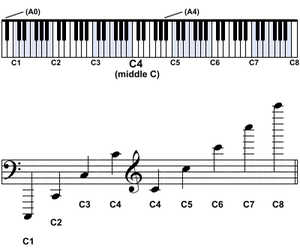Great! I’ll check it out. Sounds like alot of fun. Learning music has been such a blessing during the pandemic. By the time we get back to our live performances we will all be so much better at it! I started on drums but found myself more of a natural with the bass.
Oh I am not a drummer - I meant drum programming 
Sorry about that.
I have a full book of them called “Drums Complete” - The ultimate beginner series.
Yeah drums really lend themselves well to tab format.
Omg! That rocked!!! I hear triples and quadruples on the drums! Your voice blends perfectly with that style. Nice!
Hah, thanks 
I need to make some current video’s to share. I have 3 on YouTube of original songs but they’re from over 2 years ago before I was playing bass. I created video’s to go with the studio produced audio tracks (I had a producer friend, he’s since passed) I had alot of fun using Final Cut Pro.
That’s great! The video is really good and the production - mix and mastering - sounds great to me. Your voice is really good too. Did you do that in a studio? I’m pretty hampered by my apartment - can’t really project without the neighbors laughing/getting annoyed 
Doing original songs is such a different ball game. It’s been a really long time since we’ve been doing that.
Thank you! Yes, in a studio. One of the most exciting things I’ve done. I had started dating my bf who was in the middle of completing his first album and he encouraged me to start writing. I cranked out three songs and his producer wanted to record them. It’s quite the process! I got to sing my own harmonies over the top. You make several takes and go section by section choosing your favorite performances.
We turned one of our bedrooms into a music room and padded the walls with foam squares. We’re in a house though. We have noisy neighbors. When they get loud, we join in! 
It still sounds great. You can add it to a looper when you jam.
Nice song and video production @froghopper01
Thank you Pam! I hope to make more video’s soon. That was so much fun.
Not trying to nit-pick, but isn’t open E string an E2 since it’s higher than the C2 shown on the bass clef?
No. That’s the point.
Open E string is E1.
It is notated at the position for E2 (i.e. above C2) on the bass clef for bass guitar because the bass is a transposing instrument, and is notated an octave higher than the note actually is.
The piano is not a transposing instrument. The actual place a bass guitar E string should be notated is the open space between four and five ledger lines below the bass clef. But since that would suck, notationally it is transposed an octave up. But only in bass guitar sheet music.
So, to convert other sheet music to bass guitar, you need to transpose it back yourself.
Now here’s a mind blowing thing - not all instruments transpose by whole octaves. In fact relatively few do. Some even transpose by half steps.
So, you have to be really careful using sheet music to learn songs, if the sheet music is not for the instrument you are playing.
I appreciate that explanation - I thought the reason for the bass clef was to handle that “different octave” stuff. So the lowest E on a keyboard should match my open E?
Appreciate you taking the time to explain that…
The reason for the bass clef IS to handle the lower octaves, it’s just that the bass guitar is even lower 
And yep, the bass guitar E string is the same note as the lowest E on an 88-key standard tuned piano keyboard.
So @howard if what you’re saying is true, and the E string on a bass (the lowest note on a 4 string) is the equivalent of the E1 of the keyboard, what does that make the open B string on a 5 string? It would have to be B0 (if there is such a thing).
I’ve always thought of my B, C, C#,D, and D# as octave 1, and then the E string or the 5th fret of the B string as octave 2. Have I been thinking wrong?
Open B is indeed B0. The first note on a piano keyboard is A0.
Ah okay thanks for clarifying.
Here’s a nice picture 

and the notes:

A0 is 27.5 Hz. Many people cannot hear that low. Normal human hearing range goes down to 20Hz.
E1, or the open E string, is 40Hz. This is useful to remember when equalizing tracks in the DAW 
